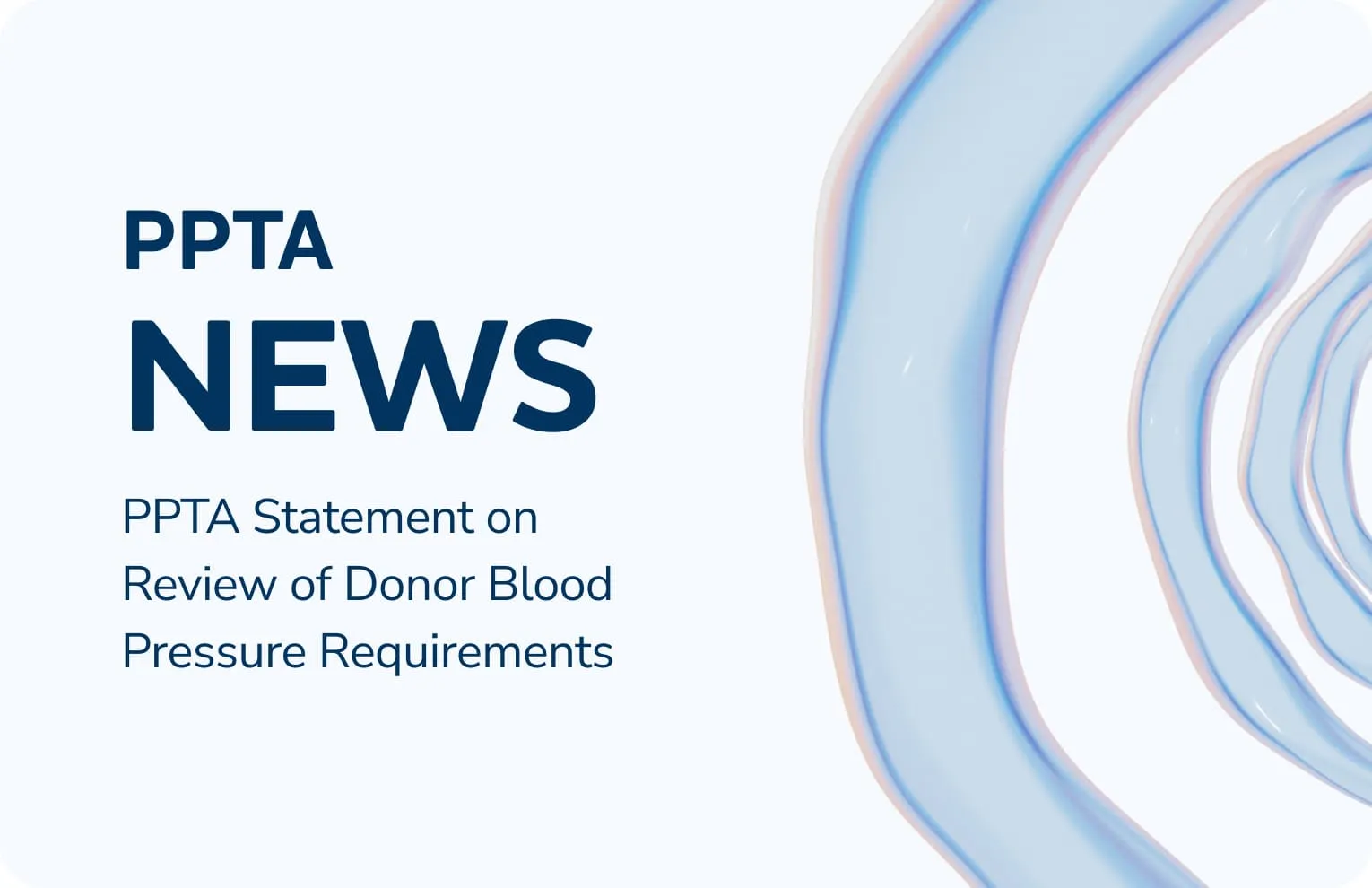The Plasma Protein Therapeutics Association (PPTA) and its member companies are grateful for every plasma donor, each of whom directly contributes to saving and improving the lives of people facing serious, inherited, and life-threatening diseases.
Plasma protein therapies, derived from donated plasma, replace missing or deficient proteins for the millions of people worldwide with these conditions. Without these treatments, many patients would either not be able to survive or would have a substantially diminished quality of life and productivity. Plasma protein therapies are truly unique, lifesaving biologic medicines.
Plasma donor safety is of paramount concern to PPTA and all its members. All plasma donation centers, whether located in the U.S. or in the European Union, adhere to strict regulations that ensure everyone who wants to donate their plasma is healthy enough to do so. Many countries have varying regulations in place, but none are better than others; all regulations ensure donors’ safety and the safety and efficacy of the therapies that patients rely on.
Plasma donation is always of utmost importance due to the unique way in which plasma protein therapies are manufactured. Now that the world is facing the COVID-19 pandemic, authorities around the world, including in the U.S. and the European Union, have unequivocally stated that plasma donation is an essential component of the broad healthcare infrastructure and donated plasma for manufacturing of human medicines is ‘essential’ in the context of the current pandemic, as is a safe and sustainable supply of donated plasma. PPTA and its member companies urge all those who are healthy and meet donation requirements to please consider donating plasma at any of the more than 900 plasma donation centers located in the United States and in Europe.
As we noted following Ms. Dodt’s earlier reporting, PPTA agrees that European countries must do more to encourage plasma donation wherever possible. Importantly, the outbreak of COVID-19 highlights the essential nature of this global resource and the importance of consistently and reliably meeting patient need for these critical medicines. It also clearly illustrates that calls for ‘European strategic plasma independence’ and national self-sufficiency models are ineffective when dealing with emerging infectious diseases and other situations with global impacts — they fail to meet the clinical needs of patients in the UK, EU, U.S., and worldwide.
Specifically, PPTA has long advocated for specific steps that European countries can take to encourage plasma donation in their respective countries, including:
- Establishing plasmapheresis programs for the purpose of collecting plasma for manufacturing use and outreach campaigns aimed at current and potential plasma donors.
- Recognizing that having enough plasma available for manufacturing use is essential and allowing the coexistence of publicly- and privately-owned plasma collection centers.
- Permitting systems that allow plasma donors to be compensated for their effort and dedication to providing lifesaving material for patients around the world.
PPTA and its member companies continue to be grateful for every plasma donor, whether in the United States or Europe, and their dedication to saving lives around the world. To learn more about the diseases treated by access to therapies derived from plasma, and to read stories from plasma donors and patients, please visit www.HowIsYourDay.org.
Created on March 26 2020





